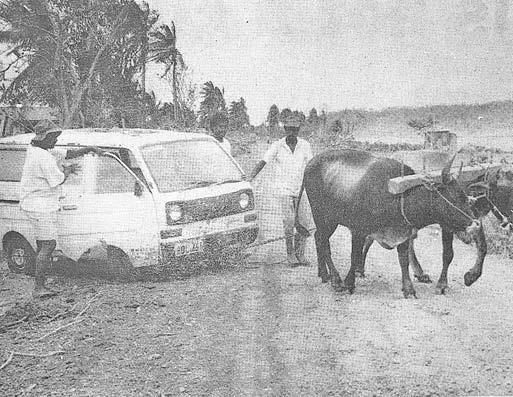In 1993 Cyclone Nina devastated much of Fiji and many civilians were left to rebuild their lives after the cyclone.
On January 19, 1993, The Fiji Times reported on the aftermath of Cyclone Kina, revealing the extensive damage and the ongoing recovery efforts.
Naitasiri housewife Saroj Kumari, from Nacokalka Rd near Baulevu, expressed her deep frustration as her family faced the daunting task of rebuilding their lives.
The cyclone had devastated their home, destroying furniture and household goods.
Ms Kumari recounted to this newspaper how the Rewa River had overflowed, submerging their tin shack and forcing them to salvage only a few items before seeking refuge on a nearby hill.
The floodwaters had damaged their furniture beyond repair, leading them to burn the waterlogged items.
“We will have to begin all over again,” Ms Kumari said.
“Cyclone Kina has destroyed all our treasured items — beds, wardrobes, settees, tables, mattresses and blankets.”
Despite the hardships, Ms Kumari and her family, including her construction worker husband and their three children, were slowly trying to rebuild.
“But it will be hard to build up again like that,” she said, “But I am so thankful to the (Disaster Management) Committee for the coming to us.
“We have got enough food to last a month.”
In Koroqaqa, residents were dealing with the aftermath of decaying livestock.
Dead cows, which had been burned by soldiers, still lingered, causing unpleasant odour and raising concerns about potential disease outbreaks.
A local reported finding more than 200 dead cows, some still buried under debris.
In Waila, near Nausori, Bhan Mati, 45, was living in a tent with her 18-year-old son, hoping for government assistance to rebuild her home.
“This is the first time I have seen food distributed so quickly and fairly,” she said
“We are quite happy with what we have.”
Asked whether she knew of people who had received rations even though they did not deserve it, Mrs Mati shook her head.
“No, we haven’t but they should not be doing that,” she said.
Residents in Corbett Avenue, Waila, reported minimal damage to their homes but received food rations, including tinned fish, mutton, and flour.
Some questioned why they received aid despite not suffering major damage, suggesting that the resources could have been better allocated to those in greater need.
Krishan Prasad, divisional planning officer Central, addressed concerns about the distribution of food rations.
He attributed the issues to errors in registration and advised that advisory councillors distributed supplies based on their lists.
Mr Prasad assured that the distribution process would be reviewed to address complaints, and confirmed that additional food supplies would be provided to those who had only received a limited amount initially.



